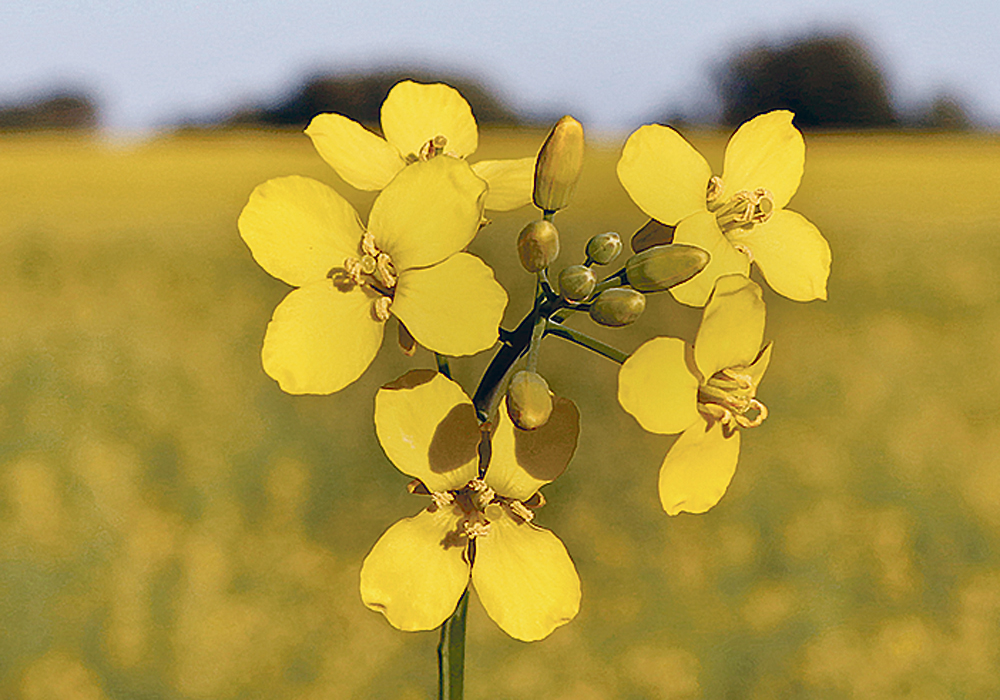Industry official hints that Canola Working Group is having a ‘good strategic discussion’ about how to deal with trade dispute
There have been a couple of encouraging developments in Canada’s lingering canola dispute with China.
Jim Everson, president of the Canola Council of Canada, provided farmers with an update of the China situation at the Saskatchewan Canola Development Commission’s annual general meeting at CropSphere.
He said there hasn’t been much progress on technical discussions happening between the Canadian Food Inspection Agency and its counterpart in China.
But he hinted that there is progress happening with the Canola Working Group, which is a collection of government and industry officials trying to figure out a way to regain access to China.
Read Also

Why feds imposed EV tariffs
Moe and Kinew have a fight on their hands when it comes to eliminating the EV tariff. Canada has to worry about pissing off the U.S. and Mexico and hundreds of thousands of auto workers.
“There is a very good strategic discussion going on, which largely we are not able to share,” said Everson.
He was asked why he was unable to share details about the plan in an interview following his presentation.
“We can’t really talk publicly about the strategy that is being developed because we’re feeding into a negotiation that takes place between Canada and China,” he said.
The other encouraging development is that exports of Canadian canola seed to China that had been hovering around 50,000 tonnes per month since China shut the door to Richardson International and Viterra, jumped to about 200,000 tonnes in October and 100,000 tonnes in November.
“There are people there that want the product,” said Everson.
The working group is also contemplating ways it can help the industry diversify its markets.
One proposal is for the federal government to provide more market access support in markets like Pakistan, Bangladesh, Vietnam and Thailand.
“Those are markets where our government doesn’t traditionally have very good regulatory co-operation and regulatory contact and engagement,” said Everson.
Another idea is to increase Canada’s federal biodiesel mandate.
Bernie McClean, director with SaskCanola, is particularly excited about that option.
The canola sector has been lobbying for an increase in the federal biodiesel mandate to five percent from two percent for a number of years with no success.
But McClean thinks federal and provincial governments are eager to help out canola farmers any way they can in the midst of the ongoing political dispute with China.
He told farmers attending the meeting that now is the ideal time for a concerted lobbying effort on expanding the biodiesel mandate because politicians are likely more receptive.
“Sometimes it takes a crisis to actually move the ball forward,” he said.
“We certainly don’t want to use the crisis in this manner but I think it’s an opportunity before us.”
McClean said expanding the federal mandate for biodiesel and hydrogenation-derived renewable diesel (HDRD) to five percent from two percent would greatly expand the domestic market for canola.
Assuming canola retains its 40 percent share of biodiesel/HDRD feedstock, the expanded mandate would result in 1.3 million tonnes of annual demand, up from 500,000 tonnes.
However, he noted that there is a good chance canola’s share would rise beyond 40 percent because it would be hard to ramp up supplies of alternative feedstocks such as used cooking oil and rendering fats.
One grower asked Everson if Richardson International has changed its mind about pulling its funding from the council now that China has banned canola shipments from the grain company.
Everson said nothing has changed.
“We have been in touch with Richardson and will continue to be, but at the end of the day it is up to them to decide what organizations they will be (funding),” he said.
















